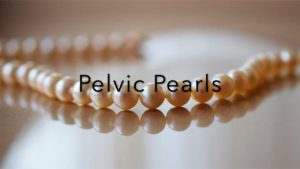
Special Guest Blog Courtesy of Dr. Ivy Branin:
For some of us spending all day at home is a dream come true, but for the overwhelming remainder it is literally our worse nightmare (this naturopath included). As a New Yorker I am blessed with an abundance of things to do outside of my tiny box called an apartment. Until now I never really thought of spending more than my sleeping/eating/grooming hours let alone weeks inside. Going to the theater, taking dance classes, meeting up with friends for lunch, and exploring museums, the list of opportunities seemed endless. At the present moment we are staying indoors so it is important to take care of ourselves physically, mentally and emotionally. This will ensure we are able to get through this time of solitude with ease not to mention good self care equals a healthy immune system. Here are some of my favorite strategies and resources to stay sane and healthy while I’m staying inside and I hope they will help you too!
Healthy Safe Eating
Before the chaos hit, we might have taken steps to ensure our pantry was stocked with months’ worth of non-perishable staples like rice, pasta, beans, nuts and snack foods. We did this to avoid having to risk going to the grocery stores or in the case of dramatic food shortages. These staples can support the basic macronutrient requirements of carbohydrates, fats and some protein of our bodies. At the same time, we want to make sure at the same time we are not skimping on vitamins, minerals and quality protein. Unfortunately some of these foods especially refined carbohydrate snacks like pretzels, chips and cookies can easily fuel emotional eating threatening our emotional and mental stability. One solution to getting more fresh organic fruits and vegetables is subscribing to delivery services like Misfits Market. Misfits Market is able to provide organic produce at a low cost because abnormally shaped fruits and vegetables that might have become compost make up their inventory. Their oddly shaped produce has the same freshness and nutrient profile as their perfectly shaped grocery siblings. What I love about Misfits Market besides the price is each box is a surprise of assorted fruits and vegetables that I might not always thinking about eating. This ensure a diet that includes “eating the rainbow.” In addition to fruits and vegetables, if we are an omnivore access to high quality meats and poultry is also important. A safe way to get our steak to dinner table is with Grow and Behold. Naf and Anna Hanau are the husband and wife team behind this Brooklyn based company which provides humanly raised and kosher meats, poultry and provisions such as sausages and jerky delivered all over the US. Grow and Behold is committed to using only pasture-raised animals without the use of hormones or growth-promoting antibiotics.
Time to Get Mindful
Mindfulness practices like meditation, yoga and breath work are important in reducing stress and anxiety. Perhaps creating a mindfulness practice has been on our new year’s resolution list for the past 5 years but everything got in the way or we sat on the meditation cushion for a few minutes, got discouraged and kicked it under the bed. Now we actually have the time to build in a mindfulness practice. Plus being stuck indoors with super overcharged minds in a time of uncertainty, we certainly need it. Luckily for us there is an abundance of resources for meditation and other mindfulness practices available. An app that I have recommended to my naturopathic patients for years is Headspace. Why I like Headspace is that they offer a variety of meditations such as for sleep and anxiety for a wide range of experience level as well as meditation instruction. Headspace can be used on any device from our smart phone to our computer. Looking for a sangha (community)? Some of the top meditation teachers including my personal favorite Sharon Salzburg are facilitating live virtual meditation classes enabling us to access the power of meditating in a group and have our questions answered in real time. I’ve already blocked of Sharon’s 1pm Tuesday March 31 class on my schedule. If we are feeling ready to dust off that meditation cushion start meditating on our own, we might want to start by watching this video on how to pacify anger.
Exercising our Bodies in Small Spaces
One of our most powerful tools against boredom, stress and anxiety is physical exercise. Daily exercise is also crucial for sleep, digestive health, and immune function. But if our gym or dance studio is closed or we unable to leave the house, how can we keep moving? This was one of my biggest fears too as if you have ever followed me on social media then you know my favorite thing to do is taking ballet classes with my teacher Zvi Gotheiner at City Center. Fortunately in our modern age of technology many fitness instructors from a variety of disciplines are taking their classes online. If we are having a hard time of deciding where to start we might want to check out Jetsweat. They are probably the leader in online fitness as from the very start they have been offering virtual group fitness classes from some of the top studios in New York such as HIT House and Vida Yoga. With Jetsweat’s free one month trial membership, we can try pilates, HIT and toning classes in the privacy of our own homes. But what about dance? There is good news here to especially for this naturopath. Brooklyn based dance studio and company, Mark Morris Dance Group, has created their own Youtube channel offering a variety of dance classes. Can’t wait to pas-de-bourring in my living room!
Hello Project Time
Idle hands might sound scary but we have the power to change that with one word “project.” There are probably so many things that we have been wanting to do or putting off because we simply didn’t have the time. Well now we have the time! Our project could be a deep spring cleaning purge, putting together Ikea furniture, creating that family photo album or starting our own blog. Having a project to work on especially if we in a period of significant employment downtime gives us something to look forward to each day, keeps our minds occupied on positive activities and allows our creative juices to be constantly in flow. If a project doesn’t easily come to mind, we might want to spend 30 minutes brainstorming. Maybe we want to learn a new language, start working on our memoir or perhaps something more practical like finishing our taxes. For more inspiration, we might want to check out some of the classes offered by Brooklyn Brainery or virtual gatherings on MeetUp.
Build in Structure
Whether we’re working or not, a life indoors can easily turn into an amorphous timeless blob. Just as much as children need a daily structured schedule (think nap, play and snack times) so do adults. One place to start is with mealtimes. This is especially important if in these stressful uncertain times we turn to the comfort of emotional eating. We can set ourselves up for success by structuring times for healthy balanced breakfasts, lunches and dinners as well as snacks if that is what our body needs. Then we add in our mindfulness time such as meditation, inspirational reading or journaling and new indoor exercise/movement routine. In the evening perhaps an hour after dinner, we can select an unwind activity such as reading, Netflix or a Zoom class/”gathering.” Importantly even if we are not working, we will still want to build in set bed time and wake times to prevent insomnia and to support restful restorative sleep.
Ivy Branin, ND received her degree in Naturopathic Medicine from Bastyr University in Kenmore, WA, one of the leading schools of natural medicine in the country. She also has a degree in Biochemical Engineering from Rutgers University. She is passionate about natural health and living and has helped a wide variety of conditions including acid reflux, acne, anxiety, depression, endometriosis, PCOS and infertility.
Dr. Ivy Branin can be contacted and followed at:
www.simplyhealthassociates.com
www.instagram.com/drivybranin
twitter.com/Dr_IvyND
www.facebook.com/DrivyND




